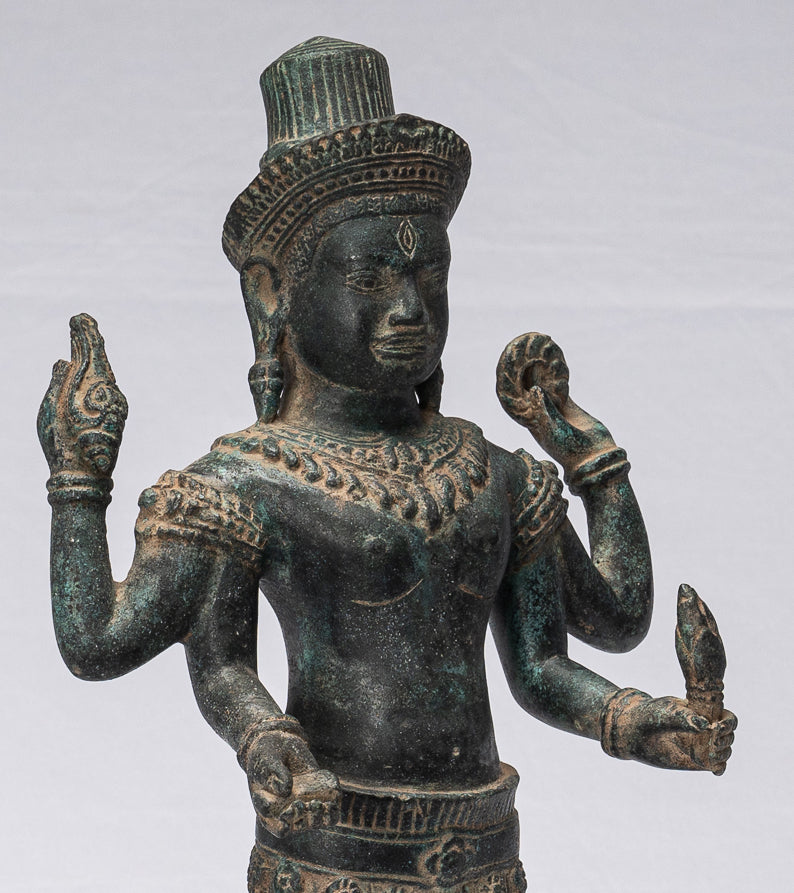
What is Shiva the God of?
By Amy Underdown, London, UK
Shiva is one of three main deities that make up the Hindu triumvirate. In fact, some argue he is the most powerful of the three, but that’s a whole other story - Who Is the Most Powerful Hindu God?
Within this godly trio, we have Brahma the Creator, Vishnu the Preserver, and Shiva the Destroyer. It is this power of universal destruction that instinctively emanates power and makes Shiva a favourite for many Hindus – maybe why he is often depicted with a smile on his face. This isn’t to mention that Shiva is in charge of the protection of the Vedas, which are ancient, sacred Hindu texts.
It may seem counterintuitive that a deity would exist in order to destroy the creations of others, not least his triumvirate counterparts, but Shiva’s powers are not arbitrary and are instead intended to make way for new and positive creations. It is therefore up to Shiva to recreate the new age of the universe when our current one has run its course, meaning he also represents the future of creation. Hindus believe that the universe is cyclical in nature, regenerating every 2,160,000,000 years. Shiva therefore has deep associations with time as a concept, as it is job to make sure that this regeneration is executed positively. This is why he is often characterised as the embodiment of both good and evil as he has the power to take away, but also replace and improve.
His commitment to both good and evil isn’t the only contradiction that is inherent to Shiva’s personality. He is often known as being a hedonistic god with extreme tendencies, and yet in other stories lives a very tamed and restricted life by abstaining from earthly pleasures. This ascetic side takes its form in his extreme devotion to meditation as the true way to find happiness. However, he is also seen as the master of ghosts and evil spirits, as well as the leader of thieves and villains.
As well as all of his other day jobs (or every 2,160,000,000 years’ jobs), Shiva is also considered to be the Lord of the Dance. This is an important role as dance is inherent to Indian culture and religion; there is an association with rhythm and maintaining the balance of the universe, as well as dance celebrating the creation as a whole. His dancing abilities tie into his overall role as the Destroyer of the universe, as at the end of an age/cycle, Shiva performs the Tandav. This furious dance is performed in order to destroy the universe, so that he can start all over again.
In terms of personal connection, bringing a Shiva into the home can bring an intense, positive energy, especially where dancing Shivas are concerned. He can also encourage better meditation, due to his personal penchant for the art form. Overall, Shiva is one of the most powerful gods, equipped with the power to destroy and create – it is this power that many people celebrate in their homes with a Shiva idol.


